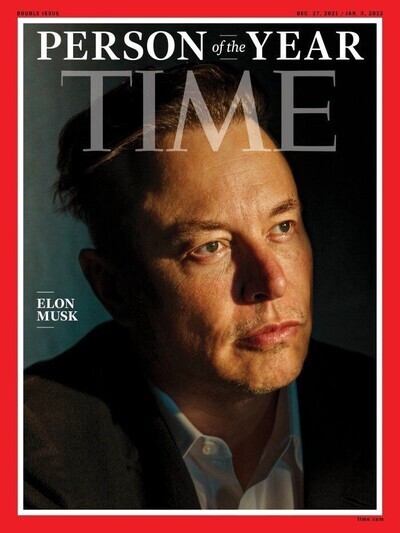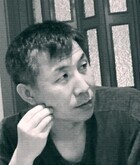hankyoreh
Links to other country sites 다른 나라 사이트 링크
[Column] Inequality in the era of the richest man in history


“. . .few individuals have had more influence than Musk on life on Earth, and potentially life off Earth too.”
This was the explanation the current affairs magazine Time gave for its selection of Elon Musk — a figure who transformed the electric vehicle and space industries — as its Person of the Year for 2021.
A few months ago, David Beasley, executive director of the World Food Programme, made a proposal to Musk, who had recently claimed the title of the world’s richest person. If Musk gave him US$6 billion of his money, Beasley said, he could save 42 million lives.
In other words, just 3% of Musk’s fortune would be enough to rescue 42 million people from starvation. His proposal wasn’t successful, but it offers a good illustration of global inequality.
To borrow the words of Karl Marx, there are three “specters” haunting the world today: the pandemic, climate change and inequality.
The pandemic has brought humankind to a halt, while climate change and inequality have driven humankind to desperation. Inequality may be incomparable to climate change in terms of its overall force, but it is certainly a pressing issue.
We live in a world where most people are under pressure as disparities grow in every area of life, from income to assets, health, education and housing. It doesn’t seem strange to talk of “inequality of destiny.”
The problem originates in wealth inequality. People with money are healthier, live longer, know more, and enjoy greater freedoms.
“From the cradle to the grave” — this expression, once a symbol of the modern welfare society, now seems to symbolize the nature of our society of inequity.
Inequality is the main reason South Korea ranks so low for happiness despite having joined the ranks of the advanced economies. It’s hard to find room for happiness when you’re being tormented by inequalities that only fan the flames of yearning and anger. Averages mean nothing in a world where the middle ground has disappeared, leaving only the extremes.
There are two main factors behind the deepening of wealth inequality: income from assets and globalization. The amount you can earn from deploying your swollen capital reserves outweighs what you make from working.
With the world becoming a single market, the overall pie for the wealthy has grown. The field of inequality will only grow with the space industry — where some are predicting the emergence of the world’s first trillionaire — and the metaverse, with its dreams of a limitless virtual world.
The problem is made worse by the passing down of generational wealth. In reality, what determines the course of a person’s life is no longer effort or ability, but where they were born and raised and who their parents are. A historic transmission of wealth is also at hand as baby boomers retire having amassed the greatest sums of wealth of all time.
How do we break this chain? Humankind has no history of solving this problem on its own.
In his book “The Great Leveler,” Walter Scheidel writes that historically, the walls of inequality have been brought down by violent shocks. He gives four examples of this, namely war, revolution, national collapse, and pandemics.
The World Inequality Lab concludes that since the COVID-19 pandemic erupted, inequality has intensified to a level on par with the zenith of imperialism in the early 20th century. After reaching new heights of income inequality at the time, Europe erupted into war.
But we don’t need to rely on catastrophe to resolve inequality. The best path is to soften the degree.
The answer is really quite simple: take back some of the excess wealth and redistribute it. Collect taxes and spend the money on social services and infrastructure.
Instinctively, even millionaires know that they did not achieve their wealth all on their own. After his first trip to space, Amazon founder Jeff Bezos said, “I want to thank every Amazon employee and every Amazon customer because you guys paid for all of this.” It prompted an outpouring of calls for him to pay taxes accordingly.
People are looking askance at millionaires who spend astronomical sums of money on space exploration while turning a blind eye to a planet in crisis and the poverty class. Those attitudes might soften a bit if they showed more commitment to reducing inequality.
Hopefully, Musk will take up Beasley’s proposal. It’s only through those kinds of efforts that the potential for compromise emerges and a middle ground takes shape between the two extremes.
When that time comes, it may be a bit easier for the different sides to reach an agreement on decisions for our collective future.
Please direct questions or comments to [english@hani.co.kr]

Editorial・opinion
![[Guest essay] Preventing Korean Peninsula from becoming front line of new cold war [Guest essay] Preventing Korean Peninsula from becoming front line of new cold war](https://flexible.img.hani.co.kr/flexible/normal/500/300/imgdb/original/2024/0507/7217150679227807.jpg) [Guest essay] Preventing Korean Peninsula from becoming front line of new cold war
[Guest essay] Preventing Korean Peninsula from becoming front line of new cold war![[Column] The state is back — but is it in business? [Column] The state is back — but is it in business?](https://flexible.img.hani.co.kr/flexible/normal/500/300/imgdb/original/2024/0506/8217149564092725.jpg) [Column] The state is back — but is it in business?
[Column] The state is back — but is it in business?- [Column] Life on our Trisolaris
- [Editorial] Penalties for airing allegations against Korea’s first lady endanger free press
- [Editorial] Yoon must halt procurement of SM-3 interceptor missiles
- [Guest essay] Maybe Korea’s rapid population decline is an opportunity, not a crisis
- [Column] Can Yoon steer diplomacy with Russia, China back on track?
- [Column] Season 2 of special prosecutor probe may be coming to Korea soon
- [Column] Park Geun-hye déjà vu in Yoon Suk-yeol
- [Editorial] New weight of N. Korea’s nuclear threats makes dialogue all the more urgent
Most viewed articles
- 1[Guest essay] Preventing Korean Peninsula from becoming front line of new cold war
- 2After 2 years in office, Yoon’s promises of fairness, common sense ring hollow
- 360% of young Koreans see no need to have kids after marriage
- 4Yoon’s broken-compass diplomacy is steering Korea into serving US, Japanese interests
- 5[Column] Why Korea’s hard right is fated to lose
- 6S. Korean first lady likely to face questioning by prosecutors over Dior handbag scandal
- 7[News analysis] Jo Song-gil’s defection and its potential impact on inter-Korean relations
- 811 years after US decamped, military base in Busan still festering with pollution
- 9[Editorial] The ideals of the Korean Provisional Government are still threatened today
- 10[Column] “Hoesik” as ritual of hierarchical obedience